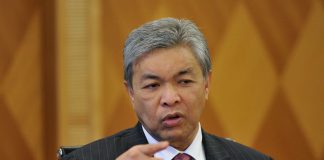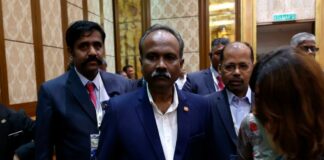PETALING JAYA,Nov 26: Two economists have called for the loosening of the longstanding link between politics and the economy, saying it would help Malaysia grow.
They acknowledged that it would be difficult to pull off, but one said there was a precedent that could be followed and the other said good policies would help.
They were commenting on remarks by former CIMB Bank chairman Nazir Razak at a recent Chevening alumni leadership talk. Nazir lamented the persistent influence of politics on the economy and called for a “system reset” to ensure that Malaysia remains competitive in the global marketplace.
Firdausi Suffian, a public policy lecturer at Universiti Teknologi Mara, told FMT Malaysia could look at South Korea for an example, saying it effectively regulated its chaebol companies following the 1997 Asian Financial Crisis. Chaebols are large family run conglomerates that often have government links.
“Their government made a tough choice and said that if these big companies did not follow certain criteria they would be sanctioned, which made them work harder and change,” he said.
Among other changes, these companies were compelled to sell off or liquidate failing subsidiaries and improve corporate governance, which helped insulate them from the next major economic crisis in 2008.
“They slowly accumulated their own capital, their own funding, and thus became less dependent on the government,” he said.
Firdausi noted the directorship changes at large Malaysian firms that would happen with every change of government and said this showed the sway that Putrajaya held.
He pointed out that favoured individuals who did not get Cabinet positions were usually appointed to top posts in government-linked companies.
Shankaran Nambiar, a research fellow at the Malaysian Institute of Economic Research, agreed that reform should not be delayed.
He said the accommodation of political influence should not come at the expense of transparency or result in the tolerance of corruption in companies.
“If institutional reform continues to be ignored, the effects on the economy will be damaging. This will eventually drive away domestic and foreign investment. The economic leakage will swamp welfare gains,” he said.
He acknowledged that “an economy is never free of political influence”, but said policies ensuring accountability and adherence to proper processes could mitigate some of the problems that typically came from undue political influence.
















